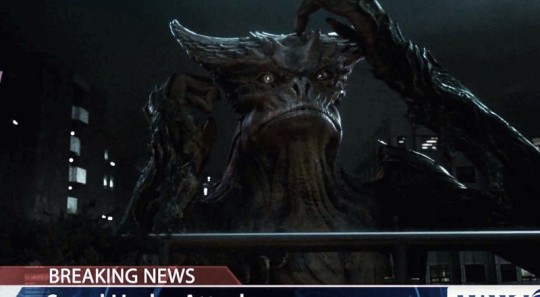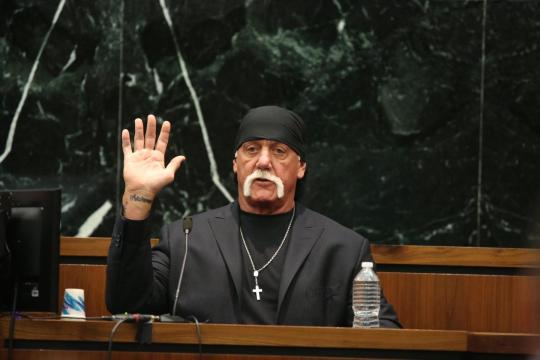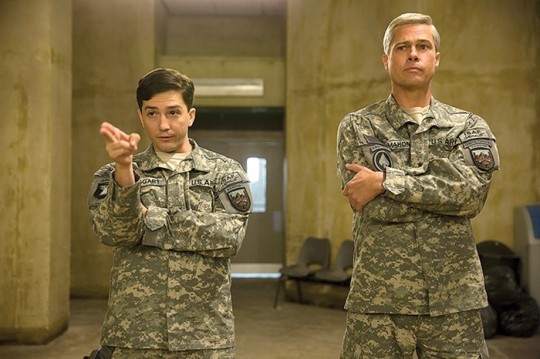#joe baby you’ve done voiceovers before what happened here
Explore tagged Tumblr posts
Text


i did not have “grace makes an anime version of herself and joe (and her other friends but idk them)” in my bingo card im gonna be honest
#grace van dien#joseph quinn#why is this so funny agahdjflslakd#why does joe sound like that#joe baby you’ve done voiceovers before what happened here#i hate anime too i can’t believe this lmao#(i’m JOKING btw i’m not hating on it ok it looks cute)#(it just came out of nowhere is all)
49 notes
·
View notes
Text
The Best Films of 2017, Part II
Part I can be found here. I should have mentioned the films I haven’t seen, which include BPM; Faces Places; The Square; Coco; Thelma; Last Flag Flying; Roman J. Israel, Esq.; Wonder Wheel; Jane; and I, Daniel Blake. Long-time AHOLs also know that I’m in the fifth year of a self-imposed five-year break from superhero culture, so I haven’t seen Logan or Thor or whatever else. With that: ENDEARING CURIOSITIES WITH BIG FLAWS 87. The Great Wall (Zhang Yimou)- Zhang Yimou's The Great Wall has a lot in common with Wong Kar-Wai's The Grandmaster. Both are high-concept international co-productions that bear just enough of the filmmaker's signature but feel unfortunately cut to ribbons in the editing room. Computers have made us all a little worse at our jobs, Zhang included, and his spectacle is achieved despite CGI, not because of it. I liked watching a boulder's journey through the stages of being catapulted, even if it eventually landed into a physics-negligent pit of cartoon monsters. By the end, the picture is more bloodless, sexless, and simplistic than a game of toy soldiers, which makes it seem just as child-like. It's a forgettable sort of fun, but it is often fun. 86. The Ghost in the Shell (Rupert Sanders)- A bit more comprehensible than the original but far less beautiful. It's a shame that visions of future exteriors haven't improved or at least changed since Blade Runner. Big advertisements. Got it. (Also, we have telepathic walkie-talkies, but people sleep on the floor?) There are a few good ideas drizzled around. If people can basically toggle back and forth between languages, why not hire a famous actor who doesn't speak English for one of the supporting roles? Speaking of acting though, Johansson is pretty bad in this, hamstrung by the whole playing-a-robot problem. (She looks as good as she ever has though, which is saying something.) She could have taken some notes from Michael Pitt, who brings some edge and skitter to his cybernetic replicant or whatever they call it. 85. Wilson (Craig Johnson)- It hits the notes that a Daniel Clowes property usually does: misanthropy, formlessness, begrudging acceptance at the end. I laughed a few times and appreciated the huge left-turn at the two-thirds mark, but I didn't think it amounted to much. 84. Patti Cake$ (Geremy Jasper)- Other than the Basterd character, there's nothing really broken about this movie, but I'm selling on anything with double-digit dream sequences.

83. Colossal (Nacho Vigalondo)- The ending, both the final act and the final note, went a long way to save what was a tedious sit for me. I appreciate the big swings that everyone took with this budget and material--Sudeikis once again gets to show impressive range. But this is an hour of material stretched to an hour and forty-nine minutes. 82. Rough Night (Lucia Aniello)- Hide-the-body movies never work, but what makes this one disappointing is that there's a daring, original corrective somewhere on the margins. You can tell from the comparatively tame bachelor party or the unexpectedly positive threesome that this movie has refreshing ideas, but both the Machine and TV visuals from a TV director shaved the edge down. No one wants to hear such a thing about a sorely-needed female-driven comedy, but Paul W. Downs is the funniest thing in this. 81. Beauty and the Beast (Bill Condon)- Shout-out to the morons protesting this movie's gayness but not realizing that the original was always an allegory for AIDS. These live-action remakes are all around the same quality, but this one feels especially bloated, with really dicey CGI. Things get borderline boring in between the musical numbers, but, man, do those numbers hold up. There's the title track obviously, but songs that would be throwaways in something else--"Gaston," "Be Our Guest," "Something There"--are BANGERZ here. The real IP is the music, and Disney is just going to get each generation's Josh Gad to sing them forever. 80. Darkest Hour (Joe Wright)- This movie reminded me of The Imitation Game in the sense that it's a staid presentation with a solid structure that feels cheap whenever it zooms out beyond its back rooms. The grander version of this, which Joe Wright in some ways already made, is probably just as unsatisfying, but it wouldn't have the pinnacle of goofiness that will hereupon be known as The Underground Scene. I’m a bit bored of this type of film. Darkest Hour might be worth seeing for Oldman's performance, which is a true transformation, absent of any actory vanity but invested with some real myth-making. Churchill gets introduced with just his hat, then lit by just a match, then lit by a shock of sunlight. Oldman is very good in his scenes with Scott Thomas, so it's a shame that her character disappears for a half-hour at a time. The more troubling thing to note is that there are many men in this film who are so English that they can't pronounce their r's. If you catch it eawly, it's a weal distwacting pwoblem. 79. The Fate of the Furious (F. Gary Gray)- Since some of the dumbest stuff is some of the best stuff*, I'm not going to get caught in the web of assessing how much sense The Fate of the Furious makes. But I can say that this entry is the least intentionally funny of the series, and other than "the White girls' soccer team is the Monarchs," it loses some of the class undressing of 6 and 7. From the endless scene-setting to the overstuffed character roster, this is now more of a comic book than a movie, an exercise in being a plot without being a narrative. *- See: the "make it rain" sequence, Statham swinging the baby carrier through a gun battle, Rock redirecting the missile with his bare hands.

78. Nobody Speak: Trials of the Free Press (Brian Knappenberger)- The first hour, centering on the Hulk Hogan/Gawker case, is compulsively watchable, even if it doesn't shed much extra light for anyone who followed it when it happened. Terry Bollea explaining that his penis is shorter than ten inches while Hulk Hogan's, the character's, is not: That's what I signed up for. When that case veers into the bizarrely vengeful, pretty much when Peter Thiel comes in, Nobody Speak becomes something else. The final third pits the sensitive, diligent bullpen of the Las Vegas Review-Journal against billionaire liver spot Sheldon Adelson, who bought their paper to suppress it. Then, of course, the doc expands to Donald Trump's vilification of the free press. If that sounds like a straight line, it doesn't come off that way in the film. The Hogan/Gawker stuff, which takes up the majority of the running time, feels unresolved after all the tangents. 77. The Reagan Show (Sierra Pettengill, Pacho Velez)- I'm cringing for the next five years, in which I'll have to judge a movie's success based on how subtly it invokes its mandatory Donald Trump comparisons and allegories. They're coming. In general, it's kind of sad to see how much more literate people were even thirty years ago, even as they populated a medium we all agreed was low culture. This documentary feels sharp at first, understanding something essential about the way Reagan owned his own persona. With the American Right treating him like some patron saint, it's also helpful to remember how much pushback he got at the end of his second term, for something that would be, like, the fiftieth most controversial thing Donald Trump would have done already. (See?) When the doc gets to its own fascination with Reagan's Star Wars program, however, it basically loses its thesis. As lean as it is, it still sort of stumbles to the finish line. 76. Beatriz at Dinner (Miguel Arteta)- I appreciated this portrayal of a culture clash way more than I liked it. For a while the characters are highly specific. (The delivery of "It's 6:13, Kathy" made me laugh out loud.) Then the plot turns into "Oh, so we're talking about Trump's America, right?" (See?) Here's a critique that's catty every time: This film has great ideas about class and race if you've never thought about class and race before. 75. I, Tonya (Craig Gillespie)- Oscar is calling...for the fat dude playing Shawn Eckhardt and no one else. If Allison Janney wins for doing the thing she always does over Laurie Metcalf's fully realized human, then it's a huge mistake. Successful in some of its comedic goals, especially in its depiction of northwestern goons, the shame of the working class, and period detail. (I laughed out loud when I saw the Girbaud tag on Gilooly's jeans.) Unsuccessful in most of its other goals--if I'm even reading the film correctly in my assumption of those goals. The most obvious one is the slippery nature of the truth, and that idea is handled clumsily. Gillespie goes to great GoodFellas-aping lengths to grapple with perception--having characters break the fourth wall even though there are already voiceovers and to-camera interviews. That talking to the camera comes up a few times in the disturbing scenes of domestic violence, which do humanize the characters because the other elements of the film can't, but they distract the viewer with their blitheness. The most puzzling angle of the film is the Hard Copy reporter, played by Bobby Cannavale in yet another example of his agent not knowing how famous he is. It's a missed opportunity in a movie full of them. 74. It (Andy Muschietti)- I don't get why people went nuts for this. The ensemble avails itself pretty well, despite all the sitcom-y dialogue. (Dialogue that, based on the Stephen King that I've read, is probably faithful to the book.) Some of the visuals nail the distinction between surreal and unreal--my favorite is the children's TV show that sporadically drifts into the murderous. But the movie just kind of hangs there, all the way to its interminable ending, satisfied with its own literal presentation of events that seem to be metaphorical. As I understand, It--however It manifests itself--represents the death of childhood and the emergence of an adult banality of evil. But the movie engages with that level as little as possible, and maybe that's why people are going nuts for it. This is a scary movie if you're a child, and most of the moviegoing public seem to be children. 73. Before I Fall (Ry Russo-Young)- I mostly watched this because I think Zoey Deutch is a Movie Star, and if I'm going to be there for her Speed, I have to be there for her Love Potion No. 9's as well. I appreciated Before I Fall's brevity, but the premise offers a lot more fun than the film is willing to have. In the end the balance was off: It had to be either more moralistically PG-13 or go way darker. For example, just like in Groundhog Day, the character realizes that she'll live out the same day no matter what she does, and it triggers a nihilistic phase. But rather than going on a shooting spree or stealing stuff from a mall, she just, like, wears a sexier dress and talks back to her parents. Good swing, kids, but I'm waiting for the crazier version.

72. War Machine (David Michod)- There are some standout moments in War Machine, many of which are thanks to its impressive cast, but I don't think the film is cohesive enough for me to recommend. I know what Michod is against--counter-insurgency, military hubris--but it's harder to figure out what he's arguing for beyond some sort of level of transparency. The war sequence near the end feels at odds with the tone of everything else, even though it benefits from the Nick Cave and Warren Ellis score. In a similarly frustrated vein, I feel as if I know exactly who Glen McMahon is, and the script's greatest strength is how sharply it draws him, but Pitt's studied performance adds distance to it. It's as if all of the film's comedic nature is supposed to come from how people revolve around his straight man, and that expectation is too much to put on his shoulders. There's more than a little Bud Turgidson in the voice Pitt affects, but the difference is that, as mean as this sounds, I always believed George C. Scott when he played a smart person. 71. The Trip to Spain (Michael Winterbottom)- Diminishing returns. 70. Downsizing (Alexander Payne)- There's a meta-effect to the structure of Downsizing. Its characters decide to shrink themselves, finding unpredictable challenges in the process, and the film similarly gets more problematic as it focuses further into each of its four legs. The first part, the outside world, is when the film is at its most cutting and well-observed. It still lays its points on thickly--dude at the bar asking if downsized people should be able to vote, for example--but the questions are worth asking. The second part, Leisureland, the bourgeois subdivision lil' Damon lives in, is more satirical and less satisfying. (I do love that downsizing ends up being such a gauche pursuit though. Payne has always had his finger on the pulse of people with poor taste.) The third part, which takes place in the downsizing slums, is a sharp, unfunny left turn that discards characters but at least develops the protagonist further. And then the wheels come off in Norway. At least we got to hear Udo Kier say, "I do love my boat." 69. Okja (Bong Joon-Ho)- Since Okja is such a unique movie, I feel as if people will overpraise it as a way to brand themselves: Its poster is probably going to be in a lot of dorm rooms. But there's a lot that you have to look past in order to recommend it. In general, I find that Bong's English language work has a bizarre mixture of muddled themes being presented in direct ways. There is some sweetness here--most of it due to the amazingly detailed rendering of the pig--but too much of the comedy doesn't work, and the ending feels a bit easy. I liked most of the stuff with the Animal Liberation Front, and I kind of wish they had been the focal point of the movie. Can I say, as my main takeaway, that I'm worried about Jakey G? He is so big here, so out-of-tune with the rest of the film, that I blame Bong for not reining him in. At the same time, I keep making excuses for Gyllenhaal, claiming that his parts are under-written, but at a certain point, you have to point the finger at him if there's such a pattern of bad performances emerging. I didn't see Everest, but this is his fourth brick in a row. Help us, Dan Gilroy. You're our only hope. 68. The Killing of a Sacred Deer (Yorgos Lanthimos)- An interesting swing that ends up missing for me. Excepting The Lobster, Lanthimos's works seem obsessed with family dynamics, and he plays some interesting games with this family's perversions. Farrell's character's story about his father dovetails with his somnophilia, which seems to inspire the way his daughter offers herself to her object of affection. From Anna's medical past to Steven's alcoholism, these characters seem to have full lives that have been in motion long before the events of the story. But I kind of suspect I'm worshiping at the altar of auteurism, and I wouldn't have half the respect or patience I do for this film had I not known who made it. The dialogue and performances are purposefully flat and stilted, thus creating an off, eerie quality before we know why we should be unnerved. But what if the performances are just, you know, bad? The film also creates a premise that concludes in an inevitably unsatisfying way. I don't know what I would have done instead, but I'm not a genius filmmaker who gets the benefit of the doubt.
3 notes
·
View notes